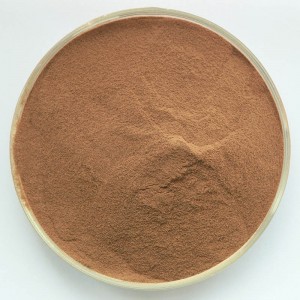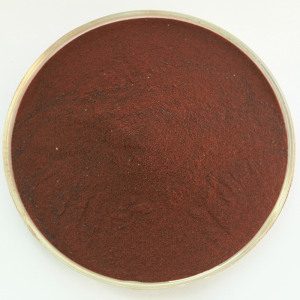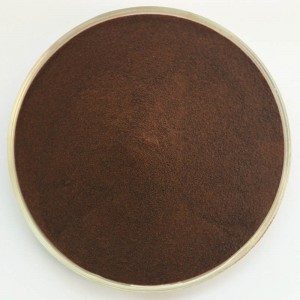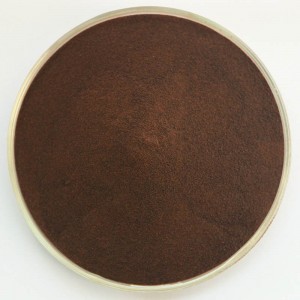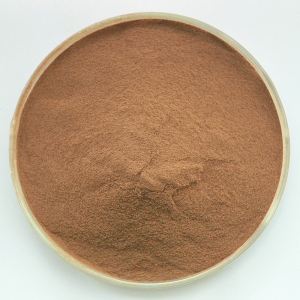
Products
Sodium Lignosulfonate CAS 8061-51-6
| ITEMS | SPECIFICATIONS |
| Appearance | Free flowing brown powder |
| Solid content | ≥93% |
| Lignosulfonate content | 45% – 60% |
| pH | 9-10 |
| Water content | ≤5% |
| Water insoluble matters | ≤4% |
| Reducing sugar | ≤4% |
| Water reducing rate | ≥9% |

Is Sodium Lignosulfonate Soluble In Water?
Sodium lignosulfonate is yellow brown powder completely water soluble, it is naturally anionic surfactant of high molecular polymer, rich in sulfo and carboxyl group has better water- solubility, surf-activity and dispersion capacity.
Typical applications of Sodium Lignosulfonates:
1.Dispersant for concrete additives
2.Plastifying additive for bricks and ceramics
3.Tanning agents
4.Deflocculant
5.Bonding agent for fiberboards
6.Binding agent for molding of pellets, carbon black, fertilizers, activated carbon, foundry molds
7.Dust reduction agent during spraying for non-asphalted roads and dispersion in the agricultural domain

Lignin and the Environment:
Lignins have been used for many years on road surfaces, in pesticide formulations, in animal feedstock, and other products that contact food. As a consequence, lignin manufacturers have performed extensive studies to test lignin’s impact on the environment. Results show that lignins are safe for the environment and not harmful to plants, animals, and aquatic life when properly manufactured and applied.
In the pulp mill process, cellulose is separated from lignin and recovered for use in a variety of different products. Lignosulfonate, a lignin product recovered from the sulfite pulping process, is of special interest in considering environmental issues. It has been used as a treatment for dirt roads in Europe and North America since the 1920s. Extensive scientific research and the historical use of this product without reported complaints of plant damage or serious problems support the conclusion that lignosulfonates are environmentally friendly and non-toxic.
About Us:
Our company is a manufacturer specializing in the production and sales of sodium lignosulfonate, with reasonable prices and reliable quality; the company has perfect technology and advanced management models, and has established long-term stable and friendly cooperation with many customers at home and abroad.




